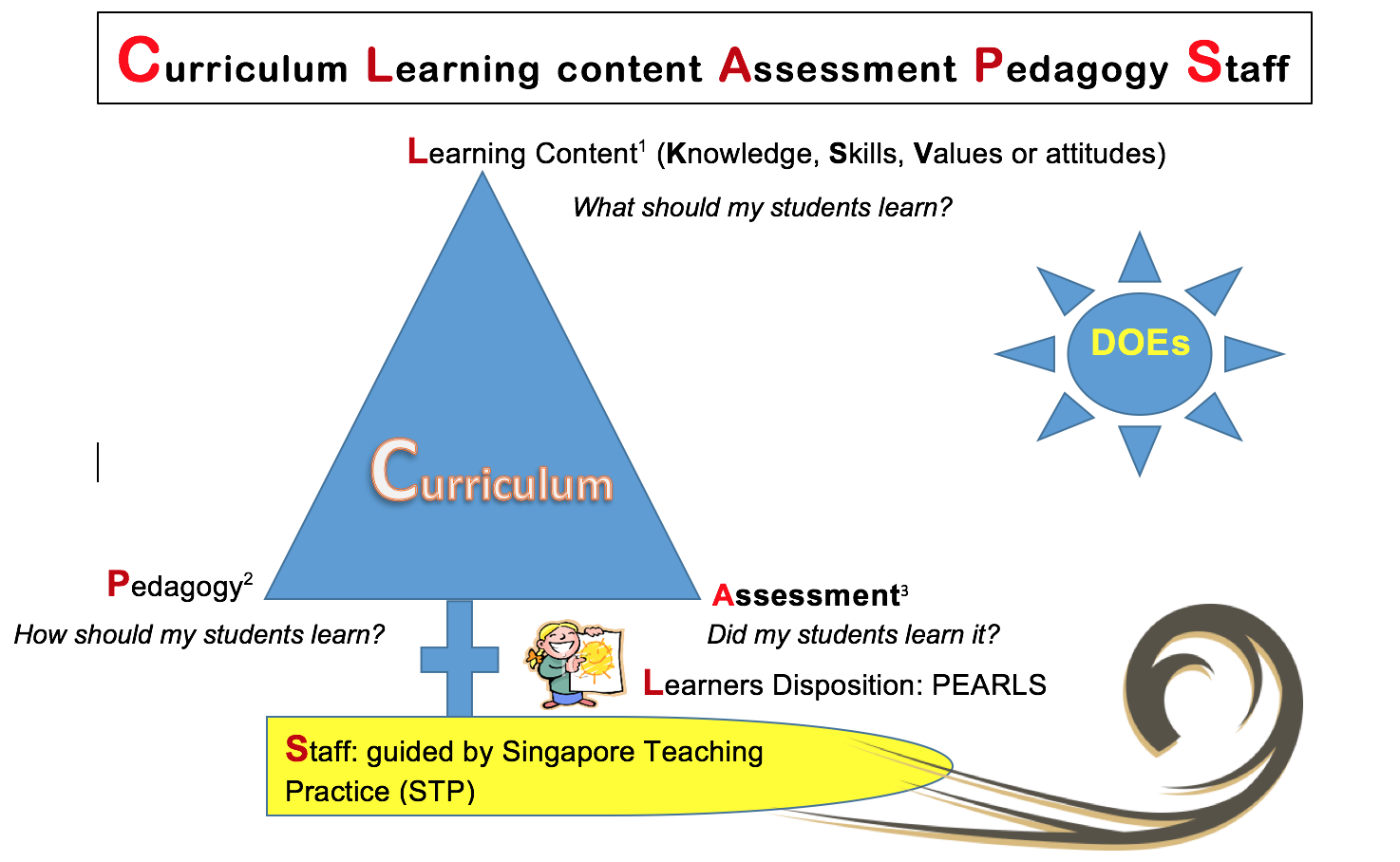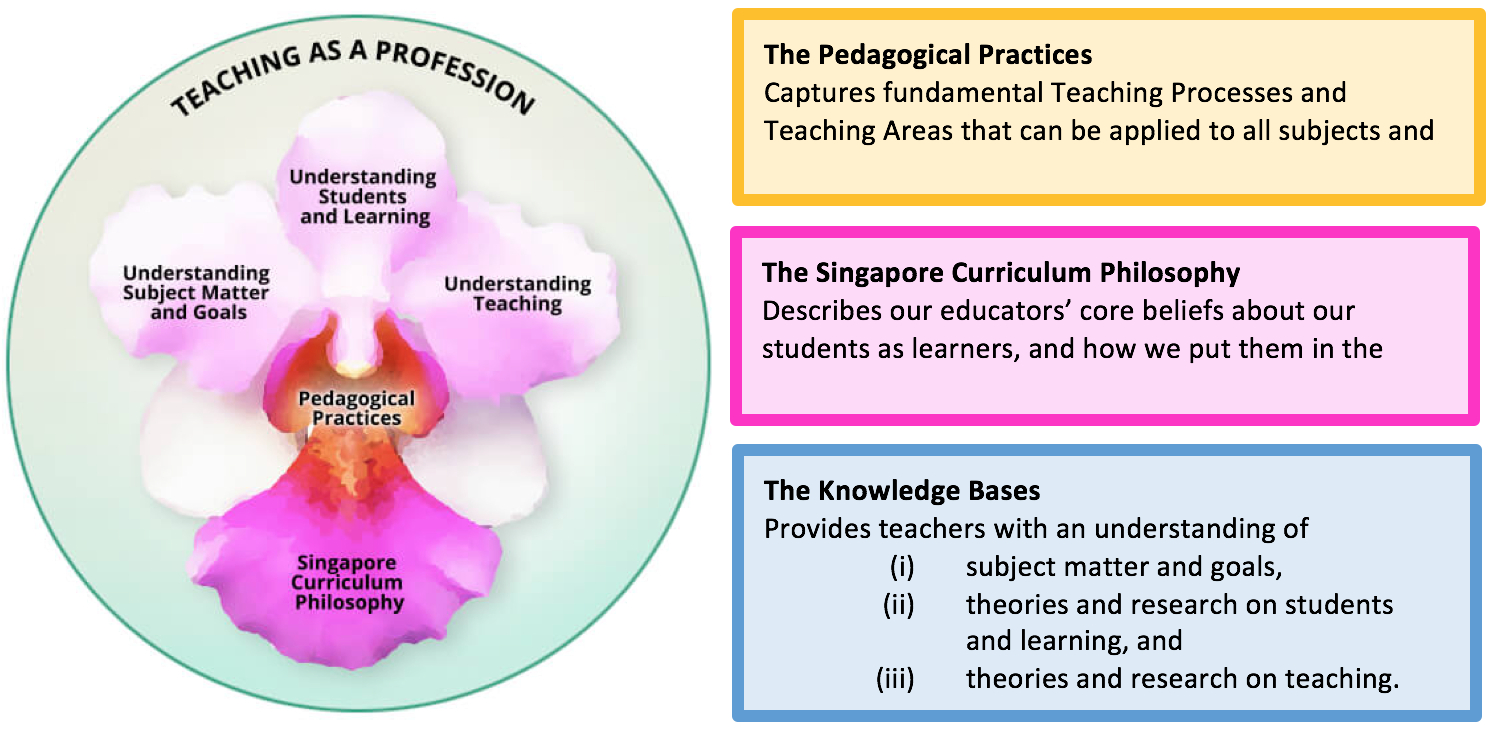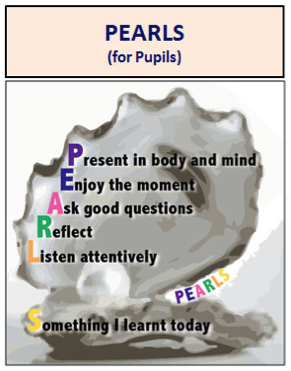IP Overview

Introduction
PLMGS(Sec)’s Teaching & Learning (T&L) Approach is framed around the concepts denoted by the acronym ClapS. This curriculum is delivered through engaging Pedagogy that are subject-specific and are aligned to effective Assessment with the goals of engaging and supporting students in their learning. Student-centredness is at the heart of our approach. The T&L Approach can be represented by a metaphor of a yacht sailing forward. It depicts our intent of providing a forward-looking curriculum that is delivered with engaging pedagogies and effective assessment to realise the PL Desired Outcomes of Education (DOEs) in our students.
The T&L Approach is premised on the teacher’s role as the key architect in planning the students’ classroom experiences. Our staff are guided by MOE’s The Singapore Teaching Practice. Our students are constantly encouraged to adopt the PEARLS learning habits for effective engagement.
Staff: The Singapore Teaching Practice

PLMGS(Sec) has adopted MOE’s The Singapore Teaching Practice Model for effective teaching and learning in the classrooms. The emphasis is on engaged learning and the development of 21st century competencies in students. The teaching processes help our staff to design and deliver a forward-looking and student-centric curriculum for our students. By forward-looking curriculum, we mean a curriculum that will develop independent learners and the meta-cognitive ability in our students. We seek to place every student at the heart of our teaching and practices.
PLMGS(Sec)’s Curriculum Philosophy
(adapted from The Singapore Curriculum Philosophy)
The philosophy describes our beliefs and it guides our teaching actions and decisions towards developing students as engaged and independent learners.
- We believe in holistic education centred on values and character development.
- We believe that every child wants to and can learn.
- We value every child as an individual with diverse learning needs and talents.
- We believe that learning takes place in caring and safe environments.
- Learning takes place individually and collaboratively, as children construct and co-construct meaning from knowledge and experiences.
- We believe in developing thinking skills and dispositions in our learners.
- Assessment is integral to the learning process and helps children become self-directed learners.
Student’s Learning Disposition: PEARLS
 We recognise that appropriate learning dispositions are needed for deep engagement in learning. The following dispositions, represented by the acronym PEARLS, have been identified and promoted amongst the students:
We recognise that appropriate learning dispositions are needed for deep engagement in learning. The following dispositions, represented by the acronym PEARLS, have been identified and promoted amongst the students:
• ‘Be Present in body and mind’ means to concentrate fully on the task at hand in the learning moment. It requires the learner to arrest every stray thought and cultivate self-discipline and resilience through exercising own choice to want to learn.
• ‘Enjoy the moment of learning’ reminds learners not to take for granted the learning opportunity. It encourages learners to relate to the learning content and make it meaningful and relevant to life.
• ‘Ask good questions’ reminds the learners to ask well-designed questions which reveal learners’ insights, understandings, and applications of their learnings. This has to be supported by a classroom atmosphere grounded in trust.
• ‘Reflect on learning’ is a good habit that we want to promote to help learners make meaning of the learning content and get into the habit of linking and constructing meaning from their experiences.
• ‘Listen attentively’ refers to one practising good listening skills. This is necessary as the teachers provide students with information that is critical to their mastery of the learning content. Learners need to pay attention in class in order to receive the full benefit of class time learning.
• Reflecting on ‘Something I learnt today’ requires the learner to take stock of her learning for the lesson and revisit a new skill, knowledge or value that she picked up during the lesson. This reinforces sense-making and understanding.
- Learning Content refers to what our students learn. It comprises knowledge, skills and values (or attitudes) that help achieve our educational goals. It is a component of our curriculum.
- Pedagogy refers to a set of strategies teachers use to manage their instruction so that students learn and understand concepts and content, and develop skills (Banilower, Boyd, Pasley & Weiss, 2006).
- Assessment refers ‘to all those activities, undertaken by teachers and by their students in assessing themselves, that provide information to be used as feedback to modify teaching and learning activities’ (Black & Wiliam, 1998a, p.140).

